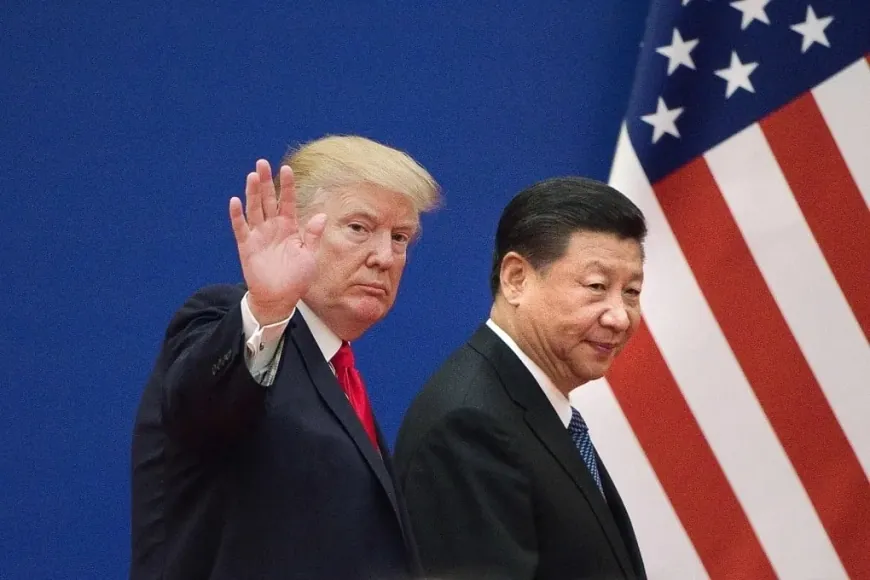Trump-Xi Friday Call Focuses on TikTok Deal, U.S.-China Trade, and Tariffs
Friday call between Trump and Xi focuses on finalizing TikTok’s U.S. spin-off, trade tariffs, and technology agreements, including Nvidia chips.

President Trump spoke with Chinese President Xi Jinping on Friday morning, focusing on TikTok’s future in the United States and broader trade issues between the two countries. The call began at 8 a.m. ET, marking the first direct conversation between the leaders since June.
Ahead of the call, Trump described a TikTok deal as nearly finalized, emphasizing that U.S. operations would be controlled by “all American investors.” He also planned to discuss tariffs, Russian oil purchases, and other trade concerns.
Chinese state media confirmed the call and reported that both sides agreed in principle to allow Chinese companies, including TikTok, to continue operating in the U.S., though questions remain about how the app’s algorithm and data management would function under U.S. control.
A U.S.-based consortium led by Oracle (ORCL), venture capital firm Andreessen Horowitz, and private equity firm Silver Lake Management is expected to oversee TikTok’s operations in the U.S. if the spin-off goes through. Trump highlighted TikTok’s economic value, noting it “has tremendous value” and emphasizing the importance of benefiting from its continued operation.
Tariffs remain a central issue. Chinese imports to the U.S. currently face a 30% duty, while U.S. exports to China carry a 10% tariff, with sector-specific duties on items like steel and medical supplies pushing effective rates higher. A 90-day pause on certain tariffs is set to expire in early November, which could see higher duties reinstated.
The Friday call follows a recent meeting in Spain between U.S. and Chinese officials, where a framework for a TikTok deal was agreed upon. The call is expected to finalize the agreement and clarify broader trade issues.
Nvidia (NVDA) chip sales to China could also be discussed. Chinese regulators have accused Nvidia of violating anti-monopoly rules, raising questions about new chip shipments. The White House has proposed allowing certain Nvidia chips to be shipped to China in exchange for a 15% share of sales.
Beyond TikTok and tariffs, the call carries broader implications for technology, trade, and geopolitics. If the TikTok deal is finalized, it could set a precedent for Chinese-owned apps operating in the U.S., influencing negotiations for other platforms like WeChat. The outcome may also affect venture capital investments in U.S. social media and AI-driven technology.
Trade relations could see temporary relief if tariffs are extended or adjusted, impacting industries such as manufacturing, agriculture, and technology through changes in costs and supply chains. Meanwhile, TikTok’s agreement could serve as a model for managing foreign-owned technology companies while safeguarding U.S. user data.
Markets are closely watching the call. Stocks tied to the deal, including Oracle, Nvidia, and TikTok-linked startups, could experience short-term volatility depending on the details announced. Globally, other nations may view the outcome as a benchmark for balancing technology, trade, and geopolitics, influencing economic policies in Europe and Asia.
Friday’s discussion between Trump and Xi could therefore determine TikTok’s U.S. operations, shape the next phase of U.S.-China trade relations, and signal how technology and national security concerns are handled amid global tensions.
- TikTok has been under U.S. national security scrutiny since 2020 due to concerns over data access by Chinese entities.
- The U.S.-China 90-day tariff pause currently covers selected goods, originally enacted to reduce immediate trade tension.
- Nvidia (NVDA) is among the few tech companies with pending U.S. approval to export advanced chips to China, conditional on revenue-sharing agreements.
- Oracle’s proposed TikTok consortium aims to secure operational control and U.S. data storage, addressing government concerns.
- Previous discussions between U.S. and Chinese officials have included limitations on Chinese tech investments in U.S. companies.
- Any resolution of TikTok’s U.S. operations may be used as a model for regulating foreign-owned apps in sensitive sectors like AI, social media, and cloud computing.
Also Read: Trump Files $15B Defamation Lawsuit Against NYT and Penguin Random House
































































